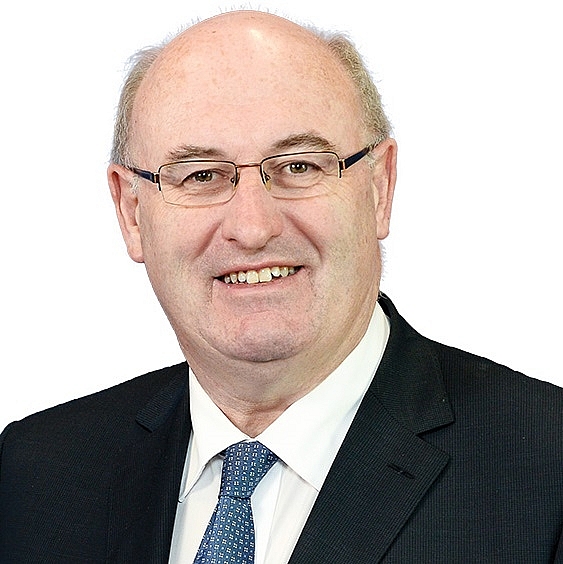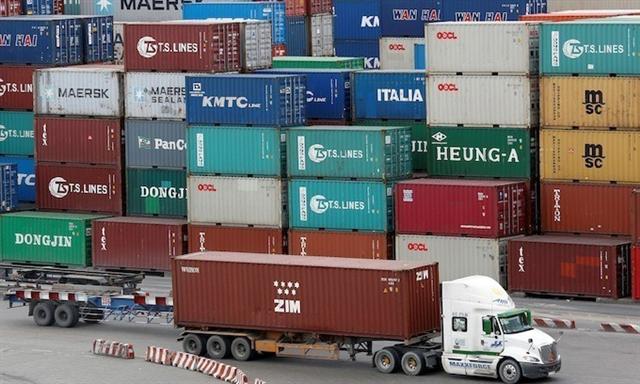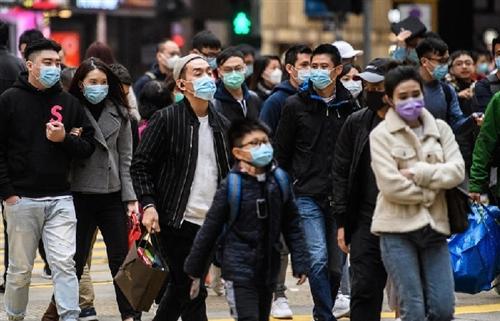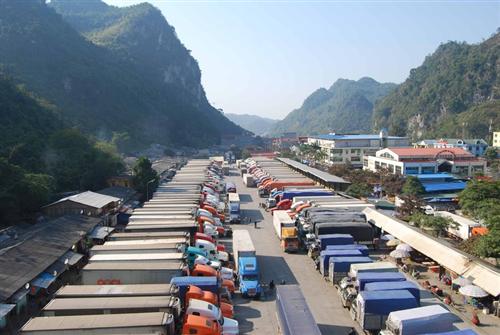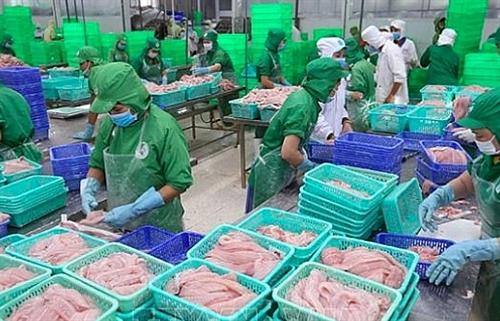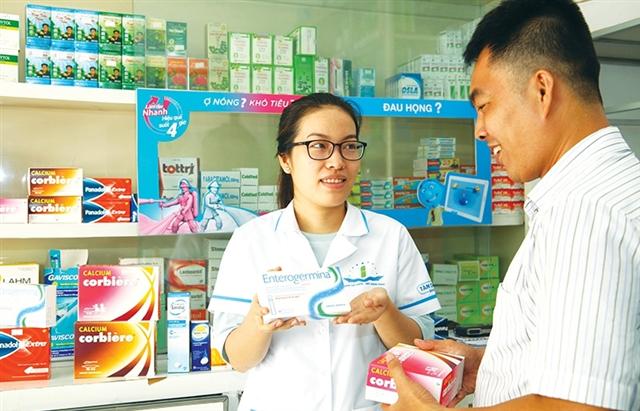EVFTA helps advance domestic agriculture
EVFTA helps advance domestic agriculture
Despite also including barriers and regulations, the EU-Vietnam Free Trade Agreement will benefit Vietnamese agriculture, with businesses supporting farmers to cash in on new opportunities from the deal.
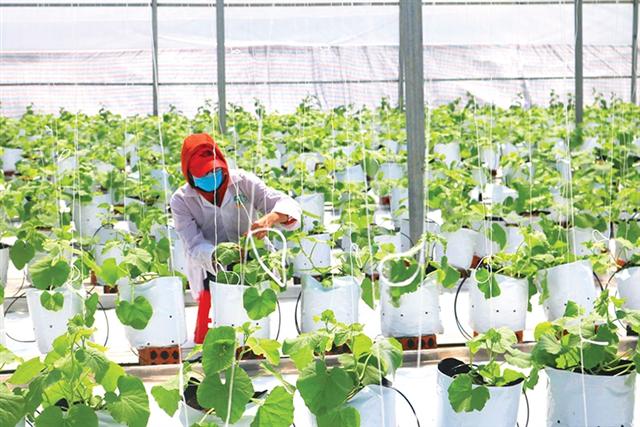
|
After being adopted by the EU Parliament last Wednesday, the EU-Vietnam Free Trade Agreement (EVFTA) will have to get ratified by the European Council and Vietnam’s National Assembly.
After coming into force, the EVFTA will reduce trade tariffs for goods such as coffee, pepper, and honey to zero. Additional tariffs for seafood and forestry products will be reduced by 50 and 80 per cent, respectively. In addition, the EU also commits to apply zero tariffs to 80,000 tonnes of ground and unground rice per year in the beginning. After three to five years, the tariffs for rice products will be completely removed.
Pham Thai Binh, general director of Trung An High-tech Agriculture JSC, a company in the Mekong Delta city of Can Tho said, “So far, we have exported rice into the EU with additional tariffs of 5-45 per cent. This is one of the biggest hurdles for expanding our exports for us.”
Nguyen Tien Vuong, deputy general director of Hapro Mart under BRG Group, said that the EVFTA was a chance for his group to push exports into the EU. BRG’s export turnover into the EU values $20 million a year, 33 per cent of its total export volume. “With these many trade tariffs removed in the first few years, the EVFTA helps us increase our competitiveness by adjusting our prices and widening our target market. Besides this, it also helps diversify sources of goods in our retail system serving the domestic market,” he said.
According to these local companies, the agreement with its high requirements regarding food safety and quality will urge producers to make use of advanced technologies and improve their management capacity.
However, Vuong also said that the EU is a demanding market with tightened rules for food safety and hygiene. “While the tariff barriers will be removed, it is likely that the non-tariff barriers of some countries will be raised, and rules of origin are difficult to meet,” Son added.
Meanwhile, Weraphon Charoenpanit, country head of Crop Science, Bayer Vietnam, said that Vietnam has become the EU’s second trading partner through an FTA in the region after Singapore. “The EVFTA will bring numerous advantages to not only by attracting foreign investors but also by giving the Vietnamese society access to a range of high-quality products,” he said.
Since its debut in the country 26 years ago, German-backed Bayer has accompanied Vietnam in its sustainable development projects and implemented many solutions to support local farmers and the whole agricultural sector. “It has been more important for European enterprises and Vietnamese producers to come together, learn from each other, and help develop a world-leading agriculture sector in Vietnam with safe, certified, and traceable produce,” Charoenpanit said.
The majority of Vietnamese farmers work on less than one or two hectares, accounting for 70 per cent of the consumption of agricultural production. Bayer has brought its digital solutions to enhance farmers’ technical capabilities to optimise their cultivation methods and achieve higher yields, quality, and profits.
Furthermore, within the Rice Value Chain co-operation programme between Bayer and Trung An, both jointly promote the local application of unmanned aerial systems in agriculture and provide customised plant protection services to help improve cultivation capacities and control residues in high-quality rice production, which is primarily targeted at export markets.
The pilot project has been implemented at Trung An’s 200-hectare farm in the Mekong Delta province of Kien Giang since last May and will last two years.
Bayer is also working on other joint projects with key stakeholders to develop Vietnam’s agriculture sustainably. “As a world-leading agriculture company, Bayer has the mission to set standards for sustainability,” Charoenpanit said.
According to Charoenpanit, the company’s innovative technologies will contribute to professionalising farming and agriculture while increasing its attractiveness for the younger generation.
On the global level, Bayer has invested more than €2.3 billion ($2.49 billion) annually in agricultural research and development to help farmers enhance their productivity, create new values, and reduce the use of required input resources. In Vietnam, Bayer’s activities help to increase agricultural productivity in a sustainable manner as well as contribute to keeping the country’s agriculture competitive in international markets.
Meanwhile, fellow German group BASF is also actively co-operating with Vietnamese farmers and provides modern solutions such as the Xarvio Scouting, a digital tool to identify weed and diseases, and receive product recommendations. Last year, the company trained more than 15,000 Vietnamese farmers in food safety and supported around 50,000 farmers with technical issues.
|
Phil Hogan - European Commissioner for Trade
|
I firmly believe that these trade agreements will create the best platform for further engagement and constructive dialogue. To not ratify the deal would be a failure and leave the European Union with fewer options to pursue a reform agenda in Vietnam and would undermine the credibility of the EU as a reliable partner.
Among members of the European Parliament, the free trade agreement and the investment protection agreement with Vietnam are the most ambitious ever concluded with a developing country.
The agreements will further reinforce our already strong trade and investment ties. And, they will also provide an additional opportunity to strengthen the co-operation established under other EU instruments, for example on illegal logging or fishing.
The agreements will strengthen our presence in Asia, following the new generation agreements.
Tomas Tobé - European Parliament Committee on Development
 |
Free trade is one of the best tools to lift people out of poverty. History proves that with all clarity, but this agreement will ensure that Vietnam can go forward on an inclusive path. Also, with this FTA, we set a very high standard as a comprehensive agreement with a developing country.
And as shared by the development committee, I am very pleased that this agreement has a dedicated chapter on sustainable development, which needs to be effectively implemented. I also welcome the timetable from Vietnam on when to ratify the outstanding core International Labour Organization conventions. Moreover, I urge both parties to make full use of the provisions of the agreements in order to contribute to strengthening human rights in Vietnam and towards the sustainable development goals. I also urge the commission to work with civil society to ensure growth in Vietnam will strengthen environmental protection and labour rights. The Committee on Development recommends to give our consent to this agreement.
Ywert Visser - Board member, Dutch Business Association in Vietnam
 |
The ratification of the EVFTA and the EVIPA by the European Parliament marks a historic milestone in the relation between the European Union and Vietnam. The next step is the ratification by the European Council and Vietnam’s National Assembly. In the meantime, the Dutch Business Association in Vietnam (DBAV) is preparing for the moment the agreement enters into force. This is expected to be in the middle of this year.
The EVFTA is a comprehensive agreement and it is therefore important that Vietnam is fully prepared for the agreement before its implementation. However, companies and consumers must also do their part. One of the keys to unlock the benefits of this agreement is for companies and consumers on both sides to be alert to the possibilities and requirements of the EVFTA. This is sometimes challenging, especially for small- and medium-sized enterprises. The DBAV will be an active participant in this process and our focus will be on sharing practical advice to companies to facilitate trade between the Netherlands and Vietnam and the EVFTA in particular.
This new-generation FTA will deliver a rise in trade and investment while creating sustainable growth and mutual benefits in several sectors. In short, it will be an effective tool to improve trade relations between the EU and Vietnam. The DBAV will continue to encourage and support Dutch companies to enhance their investment to support Vietnam’s economic growth.
Pamela Phua - General director AkzoNobel Paints Vietnam
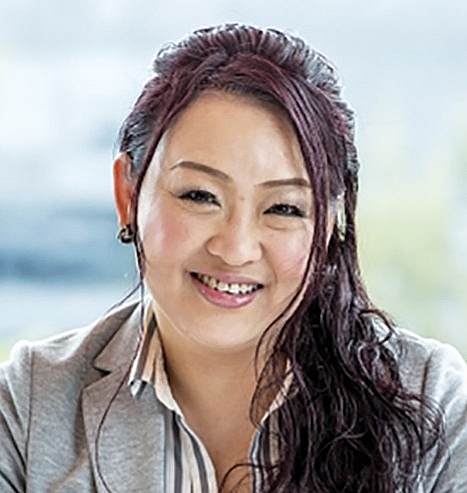 |
With the approval of the EVFTA and EVIPA, a new decade of sustainable foundation to improve quality in comprehensive co-operation has been opened.
Among EU members, the Netherlands is the country with the largest investment in Vietnam and Dutch enterprises are hugely contributing to the sustainable development of the country. As the most notable company among that, AkzoNobel is quickly making progress to help turn Vietnam’s potential into a vivid and sustainable reality.
Given that the accelerated urbanisation trend is coming along with complex environmental issues, Vietnam is finding new and suitable solutions. The company has developed a wide range of paint and coating products to meet customers’ needs. Advanced technologies that are in high esteem for their sustainable benefits are currently inherent to almost all brands in AkzoNobel’s portfolio.
Besides that, the company is building a clear pathway to reach a sustainable future with a series of events and activities to promote smart cities, urban heritage preservation, and green architecture in Vietnam.
Erick Contreras - Managing director, BASF Vietnam
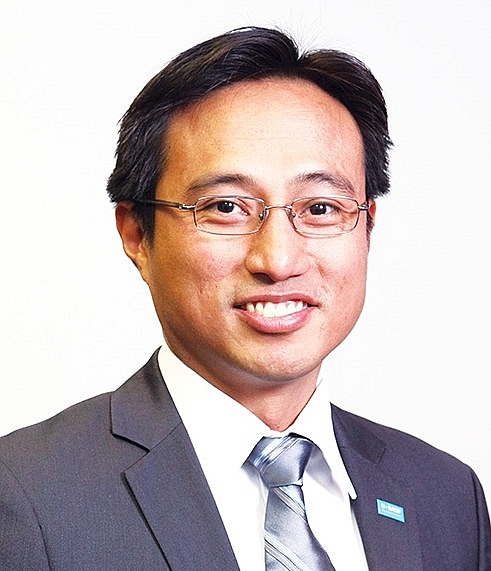 |
BASF, a global leading chemical company headquartered in Germany, has been active in Vietnam since 1994. Over the last 26 years, we have been proud to be part of the remarkable transformation of the Vietnamese economy into one of the fastest-growing in the region.
The EVFTA was approved by the European Parliament last Wednesday, and we are very pleased with this important event. With more preferential customs duties, we will be able to offer our innovative solutions to many more local manufacturers, helping them better serve the export and local markets.
Local consumers will have greater access to safe and quality goods made in Europe and vice versa, and that Vietnamese goods will be offered to many more European consumers.
Last but not least, together, we can all contribute to the sustainable development of both Vietnam and the European Union.
Lynette MoEY - Managing director Bayer Vietnam
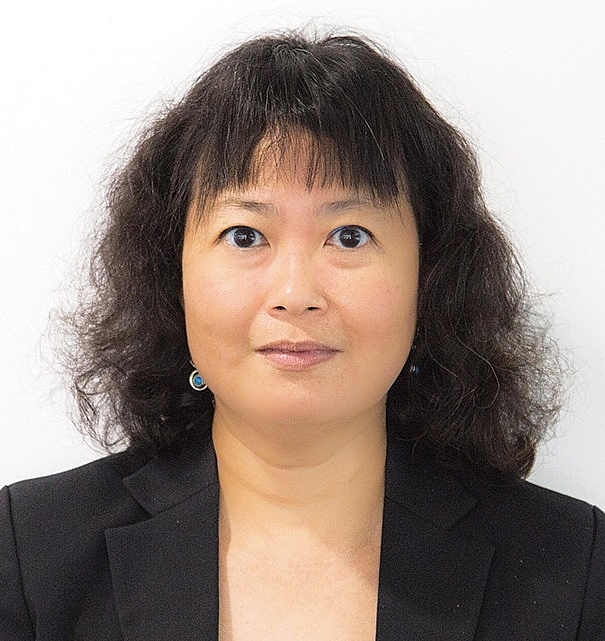 |
The EVFTA will enhance broad relationships in many areas, resulting in the creation of jobs, transfer of know-how and expertise, and introduction of cutting-edge technologies as well as provision of many new goods and services to benefit consumers. The strong commitment to an open, fair, and rules-based trade will further widen export markets for Vietnam. The improved regulatory co-operation and coherence through the EVFTA will bring advantages to Vietnam towards international rule alignment. This not only helps Vietnam attract foreign investors but also bring advantages to its society.
As we are a global company with roots in Germany with our key businesses in healthcare and agriculture and a presence in more than 90 countries worldwide, international trade is essential for our business. The company’s business depends on a complex value chain with research and development (R&D) being conducted in many different places, geographically spread production, and largely nationalised regulatory environments. In agriculture, we are converting R&D into solutions for farmers that enhance productivity, create new value, and reduce the use of inputs necessary to produce a crop. Thanks to our leading positions across technology platforms including digital solutions, Bayer is best positioned to discover, combine and tailor solutions. With that, the company enables increased agricultural productivity and contributes to keeping Vietnam’s agriculture competitive in international markets.
For the health care sector in Vietnam, there are opportunities to strengthen high-quality services through innovation and infrastructure investments. Bayer, together with the healthcare industry, is ready to join hands with the government to support such developments and share international practices to benefit the patient access to better quality of treatment in Vietnam.
With its leading innovation, Bayer is ready to have further close co-operation and partnership with the government and relevant stakeholders to achieve the national action plans in the respective areas to ensure the effective implementation of the EVFTA agreements from now.
Hans Kersten - Head of Sales and Marketing DEEP C
 |
With another hurdle being cleared, it only takes the final vote in Vietnam’s National Assembly and ratification of the European Council before the historic EVFTA can come into force. The deal holds a special significance to DEEP C as it is a drive to attract more overseas companies to the country and encourage them to pour investment in the manufacturing sector. The EVFTA reflects that Vietnam is a trustworthy place for EU companies to manufacture, meaning we respect the labour law and we do not trade environmental health for economic growth.
This is also important to DEEP C Industrial Zones because we are at the forefront of our efforts in sustainability to showcase that manufacturing and environment can coexist in harmony. On top of that, the EVFTA pledges the best import-export duties. In combination with the existing attractive investment incentives at DEEP C, it will give investors a financial advantage to participate in our endeavours.


